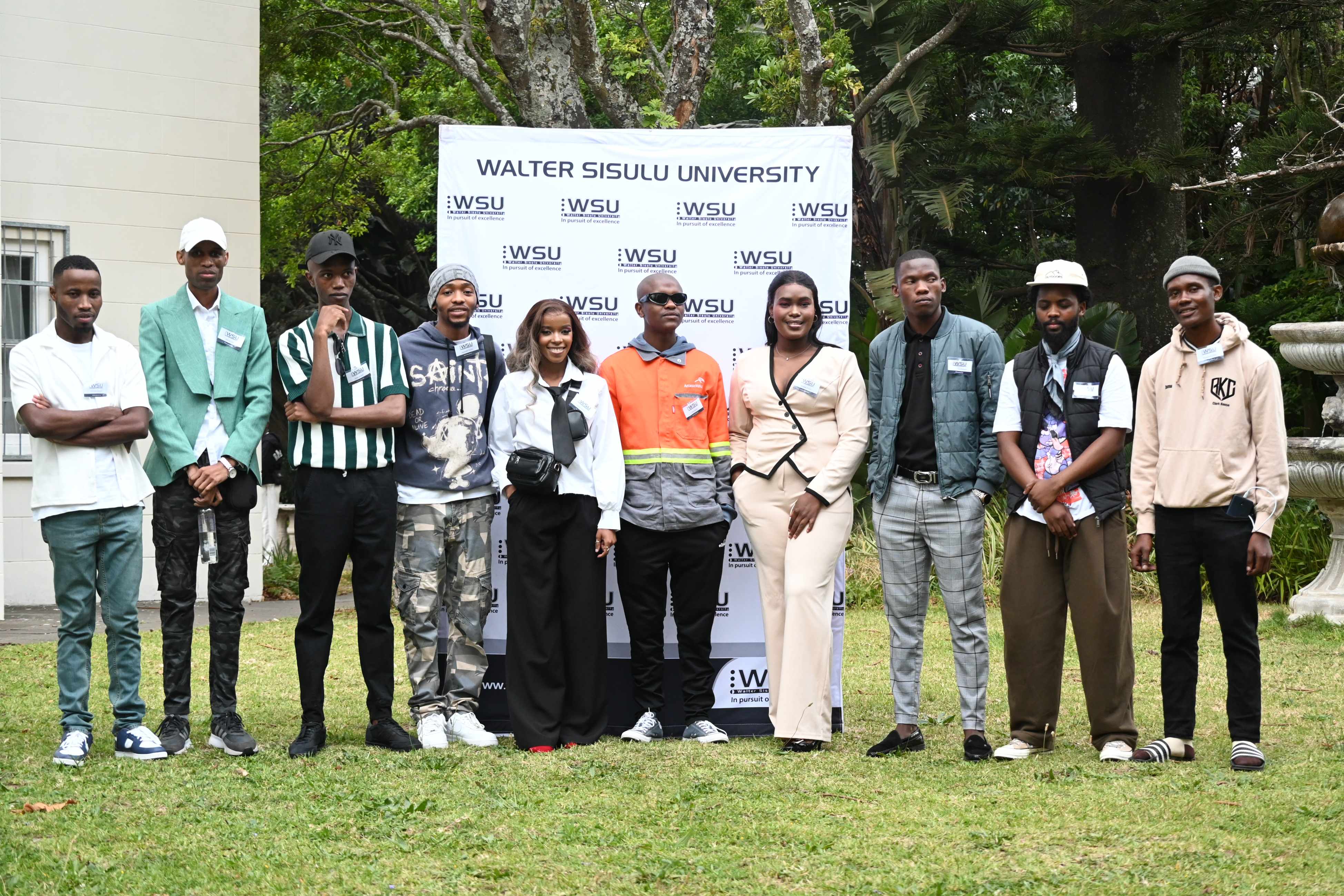My WSU | Student Life | Enterprises | Media | Support Services | Vision 2030 | Procurement | Tenders | Contact
WSU FINE ART STUDENTS SHOWCASE POWERFUL SOCIAL THEMES AT ANN BRYANT ART GALLERY

The country’s most prevalent social ills came under the spotlight during a recent art exhibition held at the bustling Ann Bryant Art Gallery in East London where WSU Fine Art Advanced Diploma students showcased their exceptional talent.
Through their impressive body of work, the upcoming artists brought into sharp focus challenges such as poverty, unemployment, single parenthood, load shedding, the art of hustling, cultural norms and practices, indigenous knowledge systems and childhood experiences.
The themes were explored through various artistic disciplines, including drawing, ceramics, painting, and printmaking.
Throngs of curious art lovers and collectors were treated to the stunning work of Nonelwa Zoleka themed “Locked Doors of Opportunity (Unemployment Rate in South Africa)”, Loyiso Ngcezu’s “Raised By An Investigation”, Akhona Jafta’s “Load Shedding” and Anele Zangwa’ “Unseen Struggles During Hustling”.
Through their diverse artistic expressions, the artists offered thought-provoking insights into contemporary South African life, demonstrating both creative skill and deep social awareness.
One of the standout figures who captivated arts enthusiasts at the launch was a protégé in the making, ceramist, Loyiso Ngcezu, whose collection drew widespread admiration for its emotionally layered and visually compelling exploration of the invasive yet delicate realities of single motherhood.
His pieces, marked by intricate detailing and symbolic sculptural forms, prompted many in attendance to pause and reflect, with some visibly moved by the depth of narrative embedded in the work.
Ngcezu explained that his inspiration stemmed from personal experience, having been raised by a single parent.
“As one who was raised by a single parent, I have noticed that single parents are going through a lot because everything depends on them for their child to survive. They are trying their best to ensure that their children are good,” he said.
He further expressed concern about the growing number of single-parent households, describing the emotional weight this carries for both parents and children.
“The number of single parents is growing due to the high rate of divorces and splits among couples. Because of this, children are growing up with anger, wishing they could exchange parents, or they work hard to prove their absent parents wrong.”
Equally compelling was the work of Alizwa Gwabavu, whose collection turned attention to the cultural memory and formative influence of traditional indigenous childhood games.
Her creation sought to highlight how these games have long served as instruments of socialisation, creativity, and identity formation among African children.
Gwabavu’s exhibition invited viewers into a space of whimsical nostalgia, using playfulness and colour to evoke buried memories.
Each piece in her collection serves as both a personal reflection and a collective remembrance, grounding her artistic expression in experiences widely shared across African communities.
In discussing her motivation, Gwabavu noted that her work stems from both her lived experience and scholarly exploration and curiosity.
“As part of my academic research in producing this collection, the most significant part is that I’m exploring and portraying games I used to play as a child and the emotions they brought,” she explained.
More stunning pieces were displayed by:
- Aphindile Ganyaza – “Exploring Xhosa Culture in My Rural Area”
- Alizwa Gwabavu – “Exploring Some Art of Indigenous Games”
- Sinethemba Phakathi – “Exploring Childhood Experiences in My Villages”
- Phuthumani Zuma – “Alienated Labour”
- Siphenathi Rautini – “Nuanced Nuisance”
By Thando Cezula
